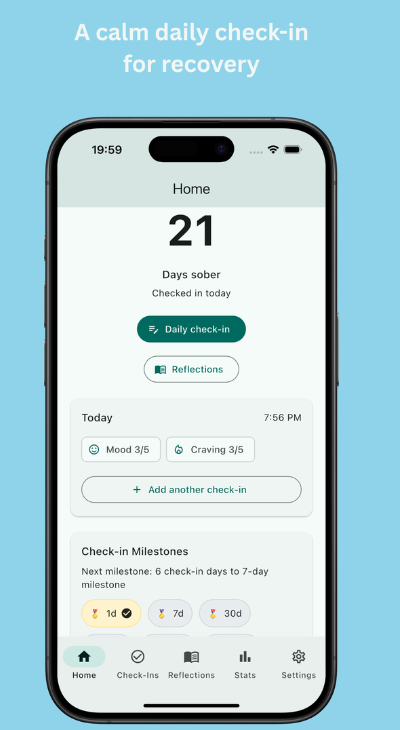How Managing Triggers in Recovery can Prevent a Physical Relapse
If you’ve been in the addiction field or around an individual who have worked numerous rehab programs you may often hear that relapse is a normal and part of the recovery process. While I do agree that the potential for relapse is common and both physical and emotional relapse rates are high, I want to challenge you to think about this concept critically. If you are telling yourself that relapse is normal then subconsciously you are giving yourself permission to relapse and that’s not what you really want.
What I do know is that most people who experience a physical or emotional relapse were never fully prepared for a full recovery. They weren’t prepared for stressful situations or having negative feelings and pain all at once and weren’t prepared for internal triggers and external triggers . So what I’d like to talk about is how you can be better prepared in your daily life and know what to look for when a trigger happens. If you can manage your triggers so that you are not at risk for relapse then your road to recovery can be one without ever having to experience a full-blown relapse.
Post Acute Withdrawal Syndrome, P.A.W.S.
Before we dive into triggers and how to prevent them I first want to talk to you about PAWS. PAWS is an acronym that stands for Post Acute Withdrawal Syndrome. PAWS is basically your body going through withdrawal after it’s already gone through withdrawal. And this is common for an individual who struggled with a substance use disorder (alcohol or illicit drugs) or an addictive behavior. You may wake up one day and be like wow I’m so nauseous and my body feels so heavy – yet it’s been 2 weeks since you’ve gone through withdrawal. PAWS can also be symptoms of negative emotions. Just know that this is normal and you’ll want to treat your health like you did when you were going through detox. Relax, take some deep breaths, do what you can to move past it. The good news is that PAWS generally doesn’t last very long and over time, the episodes will space out more and more. But PAWS can last up to one year post detox.
Some symptoms of PAWS are:
- irritability
- mood swings
- anxiety
- insomnia
Sometimes they are more physical like:
- nausea
- vomiting
The reason it’s important to be aware of PAWS is so that you know that the emotions and feelings are normal. People who experience PAWS without being told it could happen while in recovery, generally get more anxious and confused but if you know it could happen you can try to relax until it passes. The biggest reason it’s important for you to know that it could is that oftentimes PAWS causes powerful relapse triggers. So if you are aware it’s PAWS you can be very present with the symptoms and know what to do. If you are unaware that it’s PAWS you might just feel angry and agitated and desperate to not feel that way, not knowing if it’s temporary or something that could last a while.
Warning Signs / HALT
HALT! Let’s talk about warning signs to a potential trigger and how to recognize what might be the problem. Studies have shown A relapse prevention article published in the Indian Journal of Psychiatry noted, “Negative mood states associated with relapse include anger, loneliness, boredom, fatigue.” When you solve the problem you can manage the trigger which can prevent a physical or mental relapse.
Yes, your body will give you some warning signs before a trigger actually happens. You may feel anxious, nervous, sad, or maybe you just feel a bit off. When you think you’re feeling a bit off or like things aren’t right I want you to say this – say it out loud if nobody is around or say it in your head and that’s HALT! So when you say HALT you are going to stop your thoughts and think about these four things: Hungry, Angry, Lonely, or Tired – are you any of those right now? These are the most common feelings that can trigger a drug, alcohol or behavior trigger and lead to a potential relapse. If you’re hungry or thirsty, do what you can to get a snack or something to drink. If you’re angry, what can you do to cool yourself down? If you’re lonely, is there anyone you can call or talk to right now like a friend or family member? Even if it’s a crisis hotline – just find someone to talk to. Having negative emotions can lead to mental triggers so making sure you aren’t feeling like you’re in isolation is important. And last, if you’re tired – do what you can to relax your mind. If you can get a nap in then that’s always ideal – but if you’re not in a situation where you can get a nap in, like work, then try to do something relaxing if you can and then be sure to focus on the underlying reason of why you might be tired – did you not get enough sleep last night? Can you try to go to bed earlier tonight?
Okay so if you feel some warning signs and you HALT you should be able to figure out what your body is telling you it needs. If you’re not hungry, angry, lonely or tired then do what you can to dig deep into what it is that’s making you feel off and try to do what you can to eliminate it and keep practicing HALT in your everyday life.
Writing a Letter to Yourself
To start, you’ll want to make sure you’re in a good mental space before writing the letter. You want to make sure this letter is on actual physical paper – not your phone or on your computer.
So for this activity, I want you to take your time with this and really work through honestly with each step. This letter will stay with you 24/7 in the first 30 days of sobriety and then after that make sure it’s somewhere you can easily get to.
So sit down, relax and take a pen and paper and start writing.
Here are some points you’ll want to cover.
- What does it feel like to be free from an addiction and in recovery? Really go into detail here. You can talk about how it’s freeing to not have to rely on addictive or harmful substances like drugs or alcohol, or a behaviour to get through a day.
- Talk about the darkest moments, your exposure to drugs and alcohol, and how it made you feel and why partaking again will only lead you down that path. Talk about withdrawals, how you felt mentally and also how you felt physically.
- Give yourself a pep talk. Include positive emotions you may be feeling.
When writing this letter, remember it’s for your eyes only so don’t go easy on yourself. You’re only going to read this letter again if you have alcohol cravings for drugs or alcohol or feel triggered in any way. So think of things that you wouldn’t normally want to have to rethink – you know go back to those places you never wanted to revisit because in a moment of crisis where you might be tempted to use again, this letter might just save your sobriety if you’re true and graphic.
So for example, let’s say you said something horribly mean to someone while at the height of your addiction. Something you would never ever normally say – remember it and remind yourself of what you did once say. Maybe you stole money or lied. Also, if you had withdrawals because of a substance use disorder, substance abuse, or alcohol addiction, talk about the worst parts – the vomiting, the diarrhea, how you felt like you were going out of your mind.
Once this letter is finished, fold it up nicely and put it in your purse, your wallet or the back of your phone if you have that type of case. Keep it with you 24/7 for the first 30 days. If after 30 days your internal triggers or external triggers seem manageable you can put it in a drawer but never throw it away. You never know when you might need it.
Take the letter out when you feel triggered and feel like nothing else is working. I wouldn’t use this letter as your first coping skill because it’s graphic, can cause emotional pain, it’s not nice and not something you need to read often.
People/Places/Things (Common Addiction Relapse Triggers)
Managing external triggers can be stressful. Remember in school when learning about nouns you were taught; people, places and things. This is a helpful phrase when learning to manage common relapse triggers.
Let’s start with people; This is probably the hardest to manage in early recovery but the most important. The thing about managing your social situations is that it’s not always so cut and dry. Some of you have the resources and abilities to cut people out completely whereas others might be stuck in a position where you have to learn how to live with people who may be causing you stress. But, if you want to have success in managing common triggers, taking a long hard look at the people in your life is where you need to start.
Baptist Health interviewed their therapist, Brien Garcia, who stated, “As Aristotle once said, ‘The whole is greater than the sum of its parts,’ who says better outcomes are possible if you treat not just the patient but the entire family as a unit.”
Any individual who is not supportive or who has the potential to trigger you or even those who have triggered you in the past, need to go. Now I’m not saying anything has to be forever, but for now, your only focus is making sure you do not have any potential for a physical or mental relapse so if you need to take a break from the people in your life then you need to do that.
I usually recommend making a list and start knocking them off one by one. You can text, call, face to face but let them know you will not be around for a while because you’re focusing on your own self. It may go well or it may not but it’s important and needs to be done.
Now let’s talk about places. Places are interesting – when thinking about places that may be triggering think about any place where you partaken in your substance abuse or behavior addiction. If these are public places or maybe it was an event, avoid it at all costs as you don’t need to put yourself into a high-risk situation. If you need to drive a different route on your way home from work so that you don’t pass the bar where you see people drinking, then drive a different route. Don’t go into a store that sells liquor, don’t drive past your drug dealers house or where you made deals.
Now for some of you, a triggering place may be home. I recommend making this fun. Do a deep clean of your home and rearrange. Move a couch or a TV, put your bed on a different wall, park your car in a different spot, and so on. Make your place as different as you possibly can. Some of you may have the resources to do a bit of remodeling – perhaps get some new art, paint a room a different color, put your wine glasses in storage. Just constantly be thinking about places and how to avoid or change things up so that you’re not triggered. If you are triggered then think; is someone making me triggered or did I go somewhere that caused me to feel triggered?
And last, things; get rid of things that you associate with your addiction – maybe it’s any paraphernalia, if you’re addicted to porn or social media then get a new computer if possible. If you’re addicted to cocaine or used kitchen spoons – throw them away. Who needs spoons anyway right? Just look around – maybe it’s a pill bottle or your phone and you need a new one so that you’re not tempted to call someone you shouldn’t. Again if you do feel triggered, remember, HALT and assess people, places and things.
Making a List of Coping Skills
Now for this last part I want you to make a list of all the things you can do if you feel a common addiction relapse trigger. I usually recommend listing about 10 realistic things you can do. Make sure those things aren’t things like taking a trip to Thailand. It’s unrealistic to think you can feel a trigger and then hop on a plane immediately. These 10 things should be a mix of things you can do inside and outside for not just common relapse triggers but all types of triggers. For example, walking around the block, watching an episode of Friends, making a healthy snack, writing in a journal, going to the store, things like that. Include things that can help you physically, like taking a shower or jumping jacks, things that can help you emotionally like meditation and things you can do if you need someone like calling a family member, friend or treatment provider if you have one. It’s important to have such a wide variety of healthy coping mechanisms because you never know what you may need in that moment and remember to keep the list near you at all times. Perhaps it’s a list in your phone or something you can keep in your wallet. It needs to be easily accessible so that you can pull it out when you need it. It could be written on the back of the letter that you wrote to yourself. It doesn’t matter where you keep it as long as you know where it is. Some people like to memorize the list so as soon as they feel triggered they can mentally go through the list in their head to pick something to do. If that works for you then that might be a good solution as well.
Addiction Recovery Treatment
Managing physical and emotional triggers isn’t easy but it’s a critical part of any addiction recovery treatment program. No matter your drug of choice or whether you struggle with alcohol or a behavior addiction like porn, sex, or video games, having the right treatment plan that caters to your unique path to recovery is essential for long-term sobriety. Sometimes, traditional rehab isn’t right. Here at Live Rehab, we help people obtain sobriety from the comfort of their own home. We have flexible options for the recovery process and a unique relapse prevention plan that is tailored for you and your situation. Our plans focus on preventing physical and emotional relapses by using a holistic approach to addiction recovery. Everyone has the potential to live a free life, free of mental and physical illness, not be at risk of relapse and able to achieve a full recovery from addiction.


